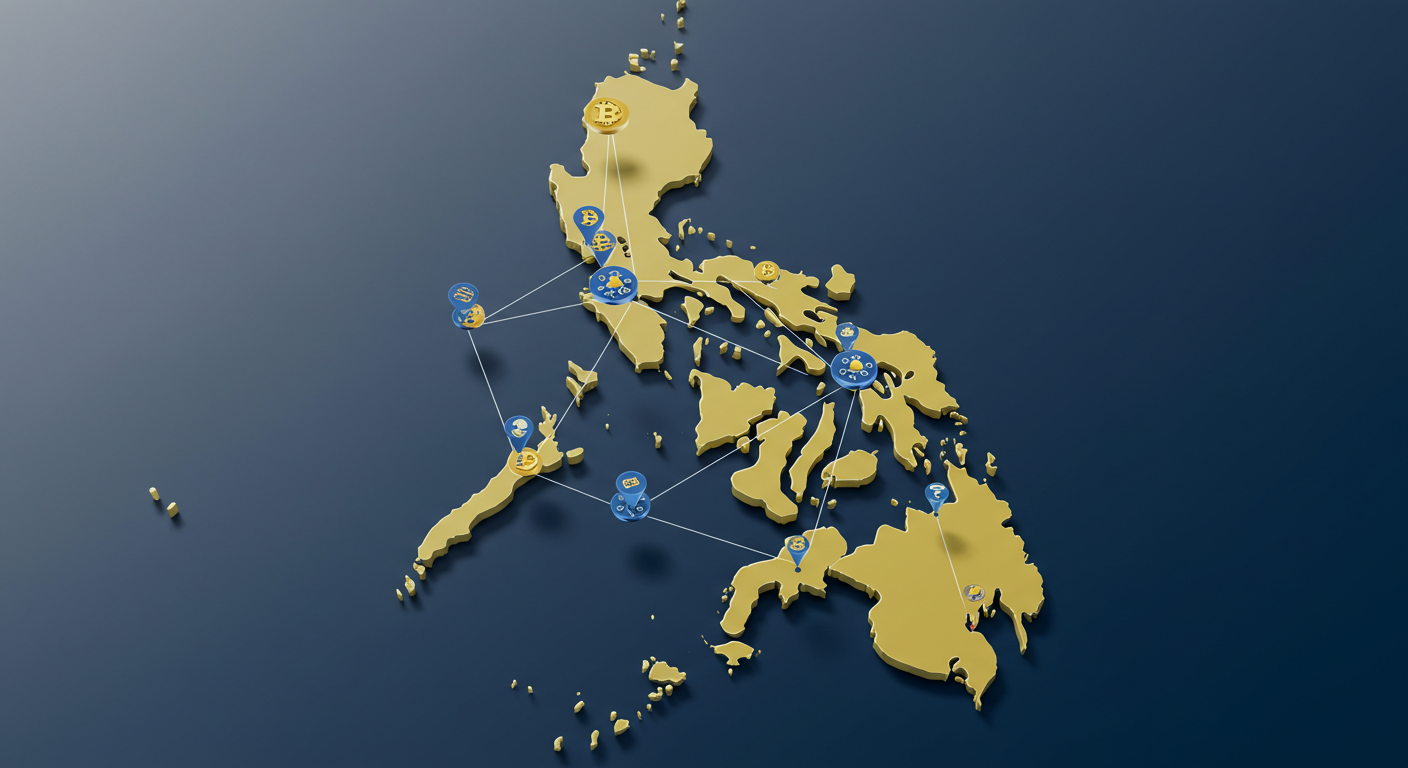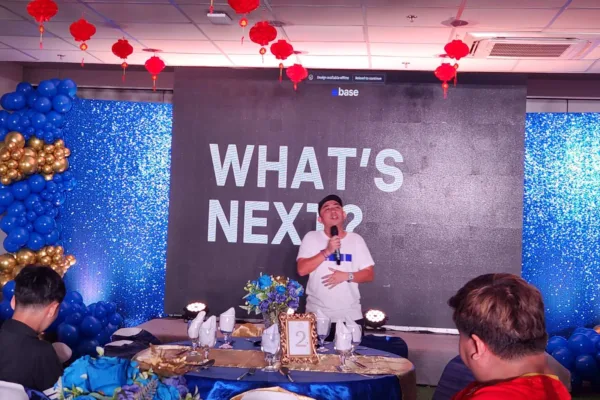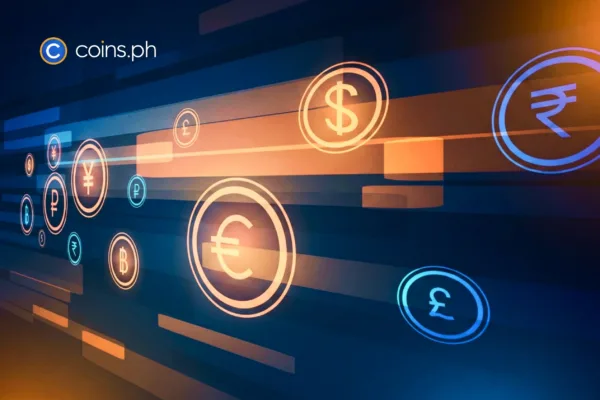by Rhyll Neri, Correspondent
Blockchain in the Philippines is not just a buzzword — it’s a powerful force reshaping the nation’s digital landscape. From bridging the financial gap for millions to creating new income streams through Web3, this technology is driving significant change. This article explores how blockchain is advancing financial inclusion, streamlining OFW remittances, opening opportunities in Web3 jobs, and being shaped by government regulation.

A quiet revolution is reshaping how Filipinos save, send, and spend money. Powered by blockchain, the same technology behind cryptocurrencies, new digital tools are expanding financial access, cutting remittance costs, and even creating jobs in the country’s fast-growing Web3 economy.
Once seen as a niche buzzword, blockchain is steadily making its mark in everyday Filipino life — from sari-sari store owners now able to accept digital payments, to overseas workers sending money home in minutes instead of days.
While risks remain, industry watchers say the Philippines is emerging as one of Asia’s most dynamic blockchain hubs.
Financial inclusion: Empowering millions with Blockchain in the Philippines

Nearly half of Filipino adults still don’t have a bank account. For many, the barriers are familiar: long queues, high fees, and limited branch access, especially in rural areas. Blockchain in the Philippines is helping address this problem by enabling a mobile-first approach to finance.
With just a smartphone, anyone can now store funds, pay bills, or access small loans through digital platforms. Micro-entrepreneurs like tricycle drivers or sari-sari store owners can transact faster and more securely, while students and families in the provinces no longer need to travel far to handle basic financial needs.
- Mobile-first design: Quick onboarding that requires minimal data.
- Programmable finance: Creates innovative products like micropayments, transparent lending, and yield-generating services.
- Interoperable rails: Enables faster and cheaper transfers across different wallets and blockchains.
This financial inclusion benefits everyone, from small-scale sari-sari store owners to rural communities, helping them fully participate in the digital economy.
Remittances: A game changer for Overseas Filipino Workers (OFWs)

The Philippines is currently the world’s fourth-largest remittance market, with overseas Filipino workers (OFWs) sending home over US$36 billion each year — more than 9% of the gross domestic product (GDP). But traditional money transfer services can charge steep fees and take several days to process.
Blockchain in the Philippines offers a powerful alternative:
- Lower fees: Transfers can cost significantly less than Western Union or similar providers.
- Speed: Settlements happen almost instantly.
- Accessibility: Cash-out partners are widely available nationwide.
“Every peso saved on remittance fees means more food on the table,” said Maricel Palma, a Cebu-based recipient.
The future of work: Web3 jobs in the Philippines

The country has emerged as a global leader in crypto adoption, with a growing number of Filipinos earning income from play-to-earn games like Axie Infinity, freelancing, and NFT projects. This surge in Web3 jobs in the Philippines shows how blockchain is creating sustainable income opportunities for many.
- Freelance payouts: Instant, borderless payments on Layer 2 blockchains are a huge win for freelancers.
- The creator economy: Artists and influencers are monetizing their work through NFTs, royalties, and crypto tipping.
- Developer roles: There’s a high demand for skilled blockchain engineers, smart contract developers, and security experts.
Beyond remittances, blockchain in the Philippines is also creating fresh sources of income. While the play-to-earn boom has already cooled off, the broader Web3 economy continues to offer opportunities.
This digital shift, experts say, positions the Philippines as not just a consumer of Web3 — but also a talent hub. Using cryptocurrencies and stablecoins (like USDT and USDC), OFWs can now send money home with:
- Lower costs: Fees can be as low as 1-2%, saving OFWs a significant amount of money.
- Unmatched speed: Transactions settle in minutes, even on weekends and holidays.
- Easy access: Recipients can cash out via local banks, popular e-wallets, and over-the-counter outlets.
👉 Pro-Tip: For safety, OFWs should use licensed Virtual Asset Service Providers (VASPs), reputable stablecoins, and trusted cash-out partners.
Regulation and trust: The BSP’s role in blockchain in the Philippines
The Bangko Sentral ng Pilipinas (BSP) is at the forefront of driving both compliance and innovation within the crypto sector. By licensing Virtual Asset Service Providers (VASPs), the BSP ensures these firms adhere to robust Anti-Money Laundering (AML) and Counter-Terrorist Financing (CFT) standards.

In a bid to curb emerging risks, the BSP has indefinitely extended the moratorium on issuing new VASP licenses — a policy initially enforced in September 2022. The central bank’s decision reflects mounting concern about the vulnerabilities inherent in virtual assets and underscores its commitment to protecting consumers and maintaining financial stability.
Enhanced monitoring, surveillance, and enforcement remain top priorities as the BSP continues to strengthen compliance and surveillance mechanisms, including efforts to raise standards in AML/CFT and align with evolving global practices.
The BSP emphasized that this moratorium is a proactive measure to shield the financial system from “heightened risks” associated with virtual assets. It also serves as a strategic pause to ensure existing VASPs are operating securely and transparently. As part of its public advisory, the BSP strongly warned consumers against engaging with unlicensed crypto firms and encouraged them to verify VASP registration status via its official website.
Risks and consumer protection: Staying safe with blockchain in the Philippines
As with any new technology, risks are present. It’s crucial for users to be aware of the potential for scams, high volatility, and potential stablecoin risks.

Best practices for Filipino users:
- Secure Your Assets: Use hardware wallets, two-factor authentication (2FA), and strong passwords.
- Verify Licenses: Always check if exchanges and remittance services are BSP-licensed VASPs.
- Start Small: Only invest what you can afford to lose and never share your private keys or seed phrases.
This balanced approach ensures that the benefits of blockchain in the Philippines are realized without compromising consumer safety.
FAQs: Blockchain and cryptocurrency in the Philippines
Is crypto legal in the Philippines?
Yes. Cryptocurrency is legal when using BSP-licensed VASPs. While not legal tender, users must comply with tax and other regulations.
What’s the safest way for OFWs to send crypto remittances?
Use licensed exchanges, choose stablecoins from reputable issuers, and confirm local cash-out options with your recipient before sending.
Will a Philippine CBDC replace banks or e-wallets?
No. A CBDC will serve as a foundational payment infrastructure, while banks and e-wallets will continue to provide retail services to customers.
What are the biggest risks for new crypto users?
The biggest risks are phishing scams, fraudulent investment schemes, and losing your private keys. Be cautious, secure your wallet, and always verify the legitimacy of platforms.
Bottom line
Blockchain in the Philippines has the potential to dramatically improve financial inclusion, reduce remittance costs for OFWs, and create exciting new jobs. However, consumer education, robust regulation, and strong security practices are essential to mitigating risks and ensuring a safe, prosperous digital future for all Filipinos.
—
Disclaimer: This article is for educational purposes only and not financial advice. Cryptocurrency investments are risky and may not be suitable for all investors.








